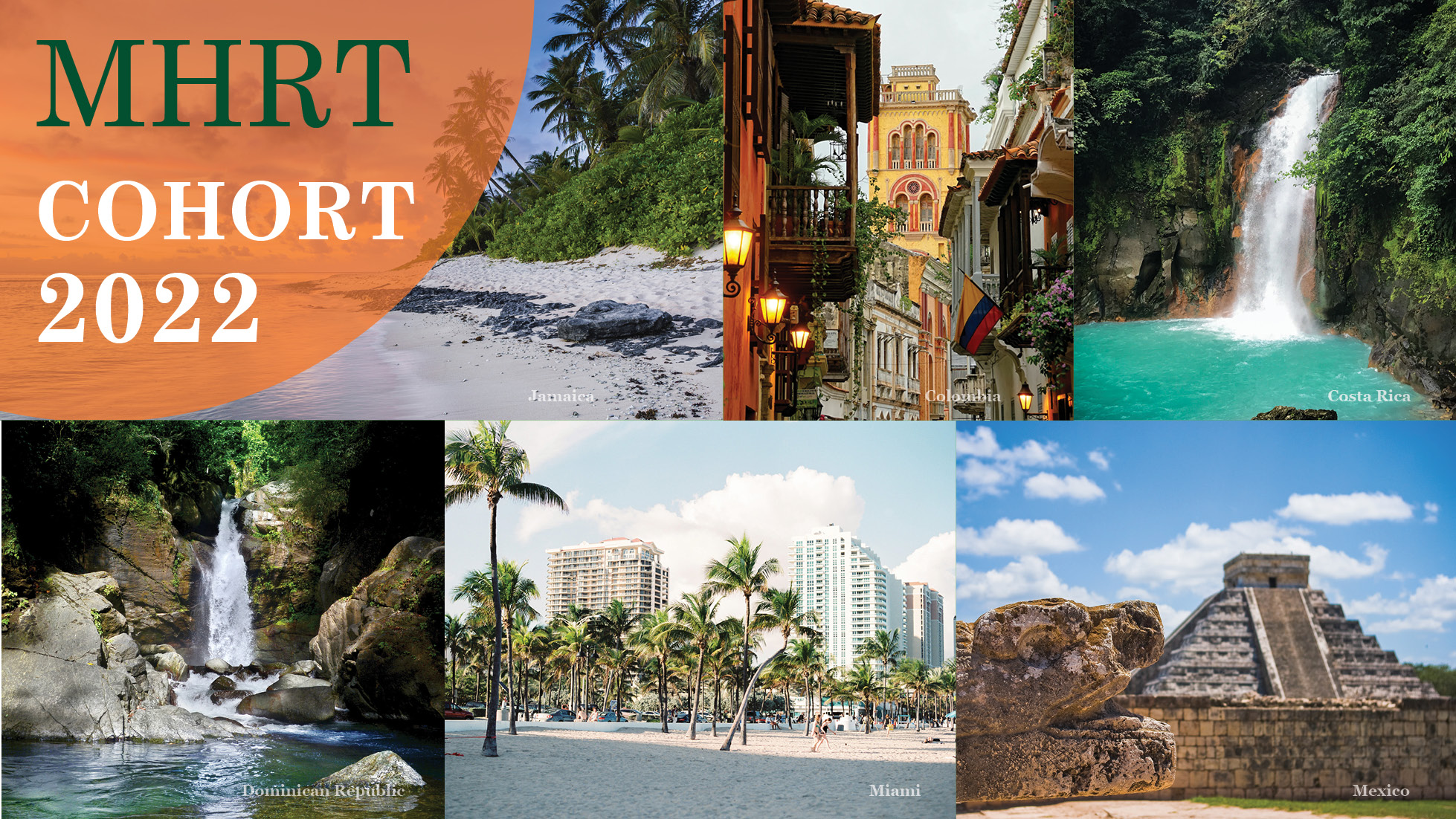The University of Miami School of Nursing and Health Studies (SONHS) will welcome a new cohort of 16 promising participants from around the United States to take part in its prestigious Minority Health and Health Disparities Research Training Program (MHRT), a grant program of the National Institutes of Health’s National Institute on Minority Health and Health Disparities (NIMHD). The school’s five-year, multimillion-dollar competitive grant, renewed in 2020, is intended to improve diverse representation of research scientists from health disparity populations in the biomedical, clinical, and social sciences.
“We are incredibly excited to have such a large, diverse MHRT cohort this year,” says Dr. Johis Ortega, principal investigator for the grant and associate dean for Hemispheric and Global Initiatives at SONHS. “Not only is this the largest cohort we’ve welcomed since COVID-19; it is our largest cohort since first receiving this prestigious grant in 2016.”
Led by Dr. Ortega, the school’s MHRT advisory committee selected the cohort from a strong pool of applicants, ranging from undergraduate to postdoctoral levels. The 16 participants will begin the program in June at the University of Miami and global partner institutions in Colombia, Jamaica, Dominican Republic, Mexico, and Costa Rica.
Three SONHS nursing students are among the cohort; Kerri-Ann Scott will travel to Mexico’s Universidad de las Americas Puebla to study Puebla’s endemic foods to improve the diet of children, pregnant women, and chronic patients or older adults; Jessica Garafola, who has a background in health administration and public health policy at the state level, and Julia Byerly will both complete their MHRT research experience in Bogotá, Colombia.
Six other UM students were selected for this cohort: PhD candidate and former Fulbright Scholar Jahn Jaramillo; Nicole O’Dell, who is pursuing her Master of Science in Public Health; prevention science and community health master’s student Melissa Castillo, who will study the health status of marginalized communities in Mexico; sophomore neuroscience major Deanna Uddin, who will study the mental health effects on people with HIV in Jamaica; undergraduate global health studies major Ye Chen; Cassandra Michel, a UM junior double majoring in psychology and community and applied psychological studies. “I am exhilarated to further my research experience,” she says Michel, one of four MHRT participants chosen to help advance research projects at UM.
The cohort’s remaining seven members were chosen from top academic programs in New York, North Carolina, Texas, Mississippi, Tennessee, and Pennsylvania. Their backgrounds include everything from molecular biology, biochemistry, and public health, to global health studies, medicine, and nursing. “I hope to gain a greater understanding of and apply the global health disparities framework to create and promote proper mental health and well-being interventions that can alleviate health disparities in the underserved community of the African diaspora,” says participant Luka Ojemaye, who came to the United States from Nigeria at age 12. Ojemaye already has one doctoral degree (physical therapy) and is now a PhD student in the University of Houston’s Human Health and Performance Department. As a MHRT participant, he will conduct research with mentors at the University of the West Indies in Jamaica. For more information, visit mhrt.sonhs.miami.edu.

